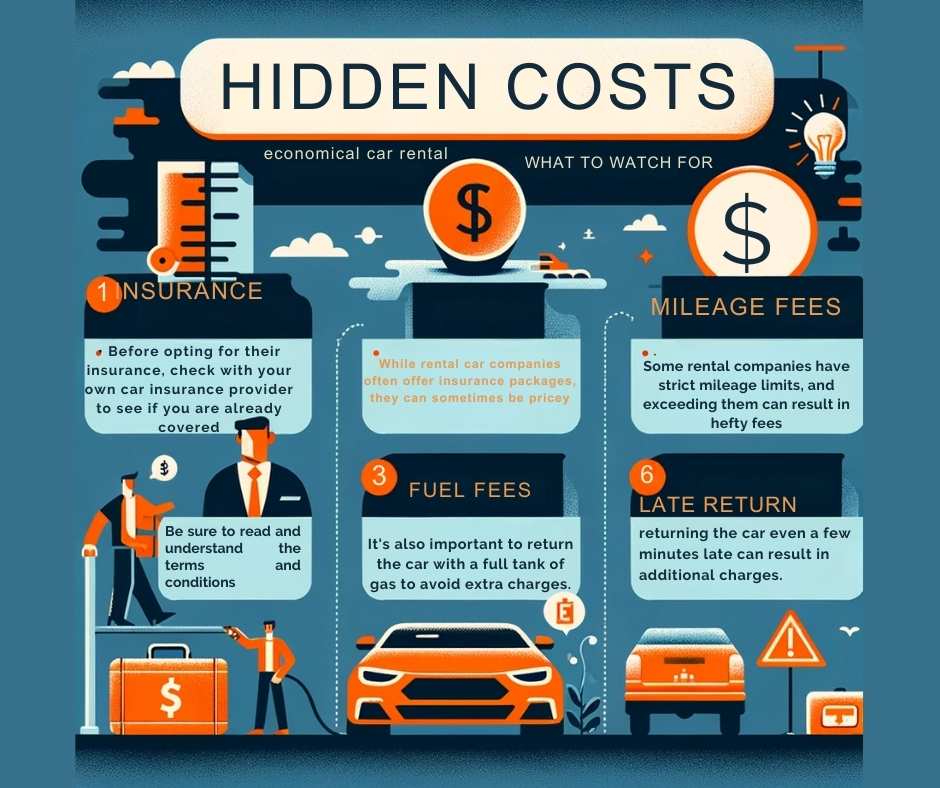
Are you planning a road trip or a weekend getaway and looking for economical car rentals? Balancing quality and affordability can be a challenging task, especially when it comes to car rentals. In this article, we will:
- Unveil the best economical car rental options available
- Compare prices between cheap and value car rentals
- Explore customer reviews for real experiences with affordable rentals
- Provide top tips for finding value in car hire
Read on to discover how you can get the best bang for your buck when it comes to Economical Car Rentals!
1. Unveiling the Best Economical Car Rental Options
When it comes to finding the best economical car rental options, it’s essential to do your research and explore a variety of providers. One popular and reliable option is to choose a well-known car rental company that offers economy or budget-friendly options. Companies such as Enterprise, Budget, and Hertz often have a wide range of economical cars available for rent at competitive rates. Another option worth considering is renting from local car rental agencies that specialize in providing affordable rentals. These agencies may offer lower prices compared to larger companies, making them a great choice for budget-conscious travelers.
To further enhance your chances of finding the best economical car rental, it’s crucial to book in advance. Planning ahead allows you to take advantage of early bird discounts and special offers that car rental companies often provide. Additionally, keep an eye out for seasonal promotions and discounts, as they can significantly reduce the cost of your rental. By being proactive and doing your due diligence, you can uncover hidden gems and secure a great deal on your next car rental.
2. Comparing Prices | Cheap vs. Value Car Rentals
When comparing prices between cheap and value car rentals, it’s important to understand the key differences. Cheap car rentals often come with the lowest price tag but may compromise on quality and customer service. These rentals may have older models, limited features, and may not be as well-maintained as their value counterparts. On the other hand, value car rentals strike a balance between affordability and quality. While they may be slightly more expensive than cheap rentals, they offer newer models, better maintenance, and often include additional perks such as roadside assistance and comprehensive insurance coverage.

To determine the right balance between quality and affordability for your car rental needs, consider your specific requirements. If you’re embarking on a longer trip or have specific comfort preferences, investing a bit more in a value rental can be a wise decision. However, if you’re on a tight budget and don’t mind compromising on some features, a cheap rental could be the way to go. Ultimately, it’s about aligning your needs and preferences with the available options and making an informed decision.
Imagine this:
Imagine planning a week-long road trip along California’s coast. With a cheap car rental, you find a great deal. However, the older model soon has mechanical issues, causing delays and extra costs.
Now, picture choosing a value car rental instead. It’s slightly pricier, but you get a newer car with roadside assistance. This choice ensures a smooth, stress-free trip, letting you enjoy the scenic views worry-free.
3. Customer Reviews | Real Experiences with Affordable Rentals

Reading customer reviews can provide valuable insights into the real experiences people have had with affordable car rentals. Online platforms such as TripAdvisor, Yelp, and Google Reviews are excellent sources to gauge the quality and reliability of different rental companies. Look for common themes in the reviews, such as cleanliness, customer service, and overall satisfaction. Pay attention to both positive and negative feedback, as it will give you a well-rounded perspective.
Another aspect to consider when reviewing customer experiences is the hidden costs associated with affordable rentals. Some companies may lure customers in with low base prices but add significant fees for extras such as additional drivers, fuel, or mileage. Reading reviews can help you identify any potential pitfalls and ensure you choose a rental company that is transparent and upfront about all costs involved. By learning from the experiences of others, you can make an informed decision and avoid any unpleasant surprises during your rental period.
4. Top Tips for Finding Value in Car Hire
To maximize the value you get from your car hire, here are some top tips to keep in mind:
- Compare prices across multiple rental companies and platforms to find the best deal.
- Look for discounts and promotions, especially during off-peak seasons, to save money.
- Consider renting from local agencies or smaller companies that may offer more affordable rates.
- Join loyalty programs or sign up for newsletters to receive exclusive discounts and perks.
- Read the fine print and understand the terms and conditions of your rental agreement to avoid any unexpected charges.
- Inspect the rental car thoroughly before accepting it and document any existing damages to avoid liability disputes.
- Return the rental car on time to avoid additional fees for late returns.
By following these tips, you can strike the perfect balance between quality and affordability in your car hire experience.
5. Hidden Costs in Economical Car Rentals | What to Watch For

When searching for an economical car rental, it is important to be aware of any hidden costs that may sneak up on you. One common hidden cost is insurance. While rental car companies often offer insurance packages, they can sometimes be pricey. Before opting for their insurance, check with your own car insurance provider to see if you are already covered. Additionally, be mindful of additional charges such as mileage fees and fuel charges. Some rental companies have strict mileage limits, and exceeding them can result in hefty fees. It’s also important to return the car with a full tank of gas to avoid extra charges.
| Hidden Cost | What to Do | Potential Consequence |
|---|---|---|
| Damage Fees | Thoroughly inspect the rental car for any existing damage before driving off. Take pictures or videos as evidence. | Being held responsible and charged for repairs if any unreported damage is found later. |
| Late Return Fees | Be aware of the rental company’s return policy. Return the car on time. | Additional charges for returning the car even a few minutes late. |
| Terms and Conditions | Read and understand the rental agreement fully before signing. | Avoiding surprises related to fees, insurance, and other policies. |
How to Assess Quality in Affordable Car Rentals
- Read Customer Reviews:
- Check sites like Yelp or TripAdvisor.
- Focus on comments about vehicle cleanliness, condition, and customer service.
- Test Drive:
- Assess comfort, handling, and performance.
- Bring someone knowledgeable for a second opinion.
- Consider Car Age:
- Older cars might have more mechanical issues.
- Ask about the fleet’s average age and prefer newer models.
- Inspect Car Interior:
- Look for wear and tear, damaged upholstery, and faulty features.
- A well-maintained interior suggests good overall quality.

7. Maximizing Your Budget | Deals and Discounts on Car Rentals
- Book in Advance:
- Secure lower rates by booking early.
- Prices rise closer to the pick-up date.
- Rent from Local Companies:
- Often offer competitive rates and unique discounts.
- Join Loyalty Programs:
- Access exclusive discounts and perks.
- Ideal for frequent renters.
- Stay Informed:
- Sign up for newsletters.
- Follow rental companies on social media for promotions.
- Compare Prices:
- Check multiple companies to find the best deal.
Finally, don’t forget to compare prices from multiple rental companies. Websites like Car Rental Reviews or Expedia can help you easily compare rates and find the best deal for your budget.
8. Navigating Insurance Options for Economical Car Rentals

When renting a car, considering insurance options is crucial. While many car rental companies offer insurance packages, it’s important to evaluate if they are worth the additional cost. Most rental companies include basic liability coverage, but it may not be sufficient in case of an accident. To ensure peace of mind, you can opt for collision damage waivers or loss damage waivers, which provide extra protection. However, these waivers can significantly increase the rental cost. Alternatively, you can check if your personal car insurance or credit card company offers rental car coverage. Always read the terms and conditions carefully to understand what is covered and what is not, reducing any surprises or extra expenses.
Another aspect to consider is personal accident insurance. While rental companies may offer this coverage, it may duplicate what you already have through your health or life insurance policies. Assess your existing insurance coverage before deciding on additional policies to avoid unnecessary expenses. Remember, it’s crucial to have adequate coverage, but it’s equally important to avoid paying for duplicate or excessive insurance.
9. The Impact of Location and Season on Car Rental Costs
Location and season play a significant role in the cost of renting a car. Popular tourist destinations or major cities tend to have higher rental rates due to increased demand. If you’re flexible, consider renting a car from locations slightly outside the city or tourist areas. This can often result in lower rates and a wider selection of available vehicles. Additionally, booking your rental car in advance can help you secure a better price, as rates tend to increase closer to the pick-up date.
Seasonal variations can also impact car rental costs. During peak travel seasons or holidays, rental prices skyrocket due to high demand. If your travel plans allow for flexibility, consider avoiding peak periods to take advantage of lower rates. Alternatively, if you must rent a car during peak season, booking well in advance can help you secure more affordable options.
10. Smart Choices in Economical Car Rentals
Finding the perfect balance between quality and affordability in economical car rentals requires careful consideration of various factors. Navigating insurance options is essential to ensure adequate coverage without unnecessary expenses. Evaluating location and season can help you find better rates and availability. By making smart choices and planning ahead, you can strike the right balance and enjoy a quality rental car at an affordable price.
Remember, when it comes to economical car rentals, doing your research and comparing options is key. Don’t rush into a decision, as taking the time to consider these factors can save you money in the long run. Whether you’re embarking on a road trip or need a reliable vehicle for daily commutes, finding a rental car that meets both your budget and quality expectations is possible. So go ahead, hit the road, and explore with confidence!

Find Economical Car Rentals with CRR
Ready to make your next car rental experience both affordable and enjoyable? Don’t just take our word for it. Visit our comprehensive review pages for top car rental companies and see what other travelers are saying!
Explore in-depth reviews of Avis, Thrifty, and Hertz to find the best fit for your travel needs. Whether you’re looking for luxury, economy, or something in between, we’ve got you covered. Click now to read real customer experiences and make an informed choice for your next journey!”
Visit Our Car Rental Company Reviews
Economical Car Rentals FAQ Section
1. What should I consider to determine the total cost of an economical car rental?
Understanding the total cost of a rental car goes beyond just the advertised price. It’s important to inquire about any additional expenses not included in the initial quote, such as taxes, fees, and extra charges for services like airport rental desks. Be sure to ask for a comprehensive quote that includes all potential upcharges to accurately compare different rental companies and avoid surprise fees.
2. Do I need to return the rental car with a full tank of gas?
Most rental companies operate on a “full to full” basis. This means you receive the car with a full tank and are expected to return it the same way. If you don’t, the company will refill it and charge you a per-gallon rate, which is usually higher than average fuel prices. Always check the fuel policy when you pick up the car to avoid extra charges.
3. Is there a daily mileage limit for economical car rentals?
While many rental deals, especially those for multiple days or weeks, come with unlimited mileage, some offers might include a mileage limit. Exceeding this limit can result in additional fees. Always confirm the mileage policy with the rental company to ensure it aligns with your travel plans.
4. What is the process for returning a rental car?
The car return process typically involves driving the car to a designated drop-off area, where an attendant inspects it for fuel level and damages. However, procedures can vary, especially at smaller rental facilities. Always ask your rental agent about the specific steps for returning the car and inquire about grace periods for late returns to avoid late fees.
5. What should I do if the rental car is involved in an accident?
In case of an accident, you should contact both your insurance company and the rental company’s customer service. It’s advisable to keep the rental company’s emergency contact information handy. Check with your personal car insurance policy or credit card for coverage before considering additional rental car insurance.
6. How can I ensure I get the best price for a rental car?
Booking your rental car in advance is the most effective way to secure a good deal. Prices tend to rise as the pick-up date approaches. Early reservations not only guarantee lower rates but also provide a wider selection of vehicles. Keep an eye on special promotions and discounts for further savings.
